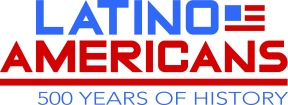
Latino Americans: 500 Years of History, produced by the National Endowment for the Humanities (NEH) and the American Library Association (ALA), is a nationwide public programming initiative that supports the exploration of the rich and varied history and experiences of Latinos, who have helped shape the United States over the last five centuries and who have become, with more than 50 million people, the country’s largest minority group. The Columbia College Chicago Library was one of over 200 recipients across the country awarded grant funding to create programs supporting this project. All programs are free and open to the public. Below are a few upcoming programs.
Latino Americans: 500 Years of History Screening: Prejudice and Pride
Thursday, October 22 at 6:00pm to 8:00pm
Library, 3rd Fl North 624 S. Michigan Ave.
Join us for a screening of Prejudice and Pride (1965-1980), an episode from the Latino Americans documentary series produced by PBS followed by a discussion with Professor Teresa Puente, Columbia College Chicago Journalism Department.
In the 1960s and 1970s a generation of Mexican Americans, frustrated by persistent discrimination and poverty, find a new way forward, through social action and the building of a new “Chicano” identity. The movement is ignited when farm workers in the fields of California, led by César Chavez and Dolores Huerta, march on Sacramento for equal pay and humane working conditions.
Latino Americans: 500 Years of History Screening: Peril and Promise
Thursday, October 29 at 6:00pm to 8:00pm
Library, 3rd Fl North 624 S. Michigan Ave.
Join us for a screening of Peril and Promise (1980-2000), an episode from the Latino Americans documentary series produced by PBS, followed by a discussion with Professor Elio Leturia, Columbia College Chicago Journalism Department. In the 80s the nature of the Latino Diaspora changes again. From Cuba a second wave of refugees to United States – the Mariel exodus – floods Miami . The same decade sees the sudden arrival of hundreds of thousands of Central Americans (Salvadorans, Guatemalans, and Nicaraguans) fleeing death squads and mass murders at home like activist, Carlos Vaquerano. By the early 1990s, a political debate over illegal immigration – has begun.









